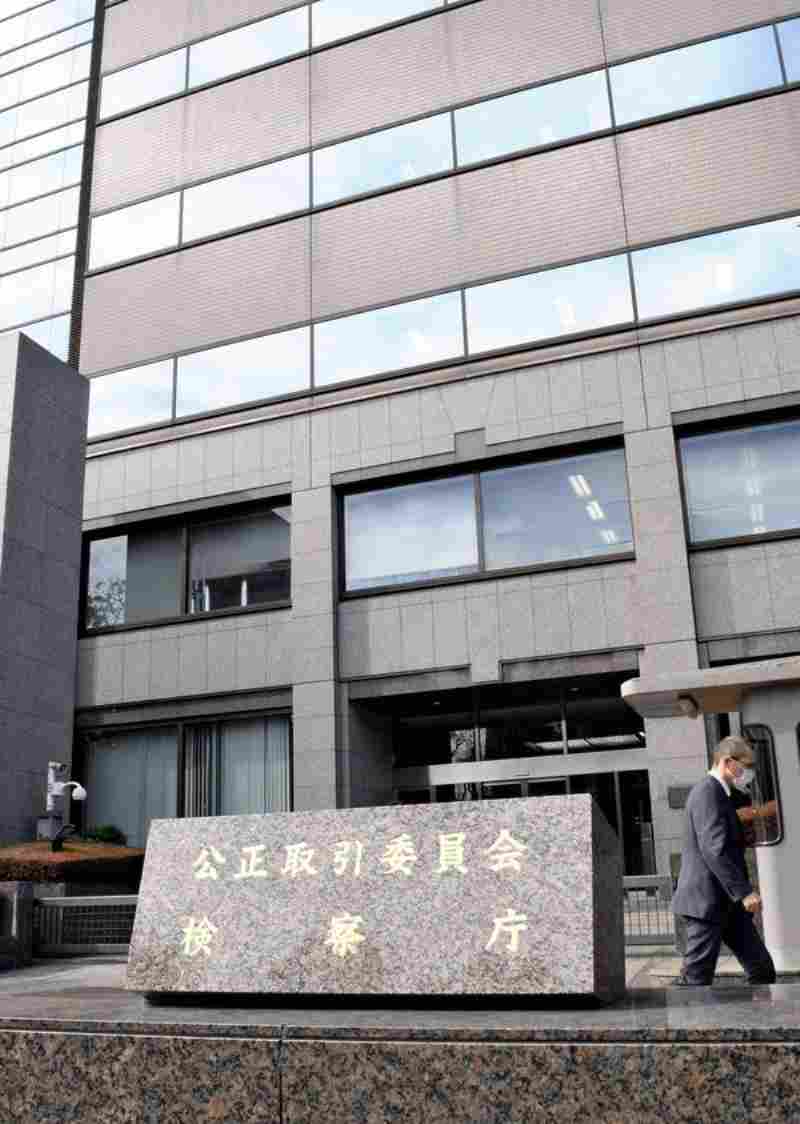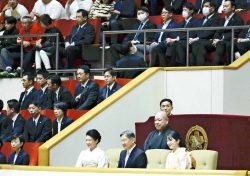
The offices of the Japan Fair Trade Commission in Chiyoda Ward, Tokyo
11:47 JST, February 15, 2022
The Japan Fair Trade Commission has called for an end to practices that lock in central and local governments to contracts for IT products or services.
Known as “vendor lock-in,” the practice can lead to higher contract prices and hinder efforts to improve the performance of products or services. A shortage of government workers with digital skills is also contributing to the problem, prompting calls for the creation of a framework to address the issue.
A JFTC survey found that 99% of central and local government offices renewed contracts with the same vendors when IT systems were updated or replaced. Almost half the respondents said their existing vendors were the only companies that could grasp the details of their systems.
With the government being called on to launch digital initiatives, the JFTC identified vendor lock-in as a problem in a report released earlier this month.
Vendors can earn money through maintenance and repairs once they have won a bid. It has been said that some vendors exploit the fact that many government bodies had little knowledge of digital systems by proposing specifications that only those vendors could handle.
Such behavior may constitute a “private monopoly” under the Antimonopoly Law, as it hinders the participation of other companies.
Some local governments have given up on changing contracts after a company refused to hand over data or submitted expensive estimates for doing so, actions that might constitute “obstruction of business,” which is prohibited by the law.
At a press conference on Feb. 8, Naohiko Komuro, director of the JFTC coordination division, urged contractors to correct their practices, saying, “We’ll deal strictly with violations of the Antimonopoly Law.”
A lack of specialized government personnel is believed to be one factor that has led to vendor lock-ins.
According to the survey, 30% of government agencies had no specialized IT departments, and employees in charge of IT-related tasks were expected to concurrently manage roles for various departments. Among these agencies, 80% had three or fewer staff members working on relevant tasks.
As information technology becomes more important in society, private companies are offering high salaries to workers with specialized skills, making it more difficult for local governments to compete.
“We tried to recruit system engineers from among people looking to move from urban areas several years ago, but nobody applied,” a local government official said in response to the survey.
There is a limit to what local governments can do to recruit human resources.
The report calls on the Digital Agency to take the initiative in funding programs to recruit specialized personnel for municipalities. It also proposed providing training for staff and creating manuals.
The novel coronavirus pandemic has highlighted the slow progress of government offices regarding the transition to digital services.
The online procedure for applications for the ¥100,000 pandemic handout was ridden with bugs, and the government’s contact-tracing smartphone app is barely functional.
In 2020, Japan ranked 14th in the U.N. Economic and Social Affairs Department’s e-Government Survey — the bottom of the top tier.
To promote the adoption of digital technology, it is essential to create an environment in which new vendors can propose better services.
The JFTC report stated: “The digital transformation of the administration is an urgent issue, and should not be delayed. [The watchdog] will work with the Digital Agency to create a competitive environment.”
Top Articles in Politics
-

Japan Tourism Agency Calls for Strengthening Measures Against Overtourism
-

Japan Seeks to Enhance Defense Capabilities in Pacific as 3 National Security Documents to Be Revised
-

Japan’s Prime Minister: 2-Year Tax Cut on Food Possible Without Issuing Bonds
-

Japan-South Korea Leaders Meeting Focuses on Rare Earth Supply Chains, Cooperation Toward Regional Stability
-

Voters Using AI to Choose Candidates in Japan’s Upcoming General Election; ChatGPT, Other AI Services Found Providing Incorrect Information
JN ACCESS RANKING
-

Univ. in Japan, Tokyo-Based Startup to Develop Satellite for Disaster Prevention Measures, Bears
-

JAL, ANA Cancel Flights During 3-day Holiday Weekend due to Blizzard
-

Japan Institute to Use Domestic Commercial Optical Lattice Clock to Set Japan Standard Time
-

China Eyes Rare Earth Foothold in Malaysia to Maintain Dominance, Counter Japan, U.S.
-

Japan, Qatar Ministers Agree on Need for Stable Energy Supplies; Motegi, Qatari Prime Minister Al-Thani Affirm Commitment to Cooperation






















